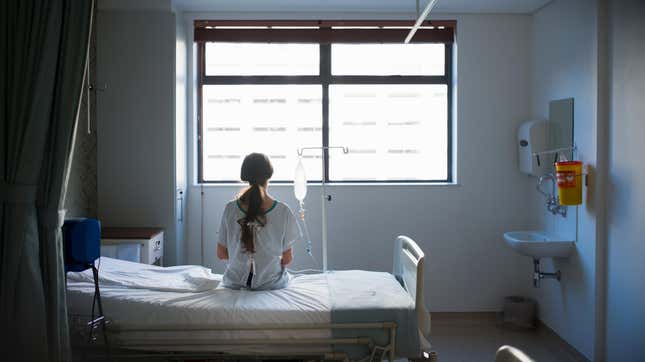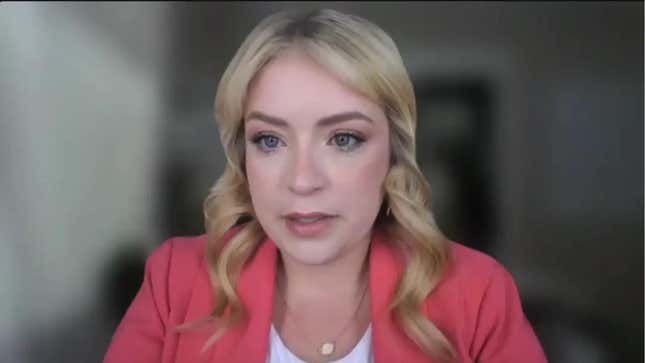The Horrifying Phenomenon of Hospitals Detaining Pregnant People
American hospitals have a history of holding pregnant patients against their will for days to prevent them from getting abortions—and it's still happening.
In Depth

On Monday, eight more women joined a massive lawsuit against the state of Texas to clarify when someone can receive emergency, potentially life-saving abortion care. All the women say ambiguities in the state’s abortion ban placed their lives at risk as they were experiencing life-threatening pregnancy complications. And Kiersten Hogan, one of the women who joined the suit this week, recounted being held for five days against her will at a religious hospital so that she wouldn’t leave to get the abortion care she needed.
Hogan’s detainment was part of an alarming phenomenon in this country: Hospitals, including non-religious hospitals, have a history of holding pregnant people experiencing complications against their will, performing unwanted procedures on them, and even colluding with law enforcement to have them detained. Hogan’s case preceded the fall of Roe v. Wade but now—as a wave of new, increasingly draconian abortion bans threaten to jail or punish doctors who provide abortion care, it seems inevitable that more cases like hers could arise.
“What’s scary is that it doesn’t have to be an anti-abortion idealogue, religious hospital,” Farah Diaz-Tello, an attorney at If/When/How who worked on Burton’s case, told Jezebel. When hospitals misinterpret abortion laws—fearing they’ll be held liable if a patient leaves their care and has an abortion elsewhere—they’re more likely to try and control their patients’ behaviors, including detaining or reporting them to the police. “Those fears are totally misplaced and misguided,” Farah Diaz-Tello said. “But the one suffering, as a result, is the patient.”

Hogan’s incident took place at the end of 2021, shortly after S.B.8—the notorious Texas “bounty hunter” law that allows people to sue anyone who may have aided and abetted an abortion—took effect, creating confusion and paranoia in hospitals about what care could and couldn’t legally be provided. “Texas law caused me to be … detained against my will for five days and treated like a criminal all during the most traumatic and heartbreaking experience I’ve had in my life to date,” Hogan said during the Monday press conference. She also claimed she was forced to remain in the hospital until she gave birth to a stillborn fetus, and that she was constantly monitored and feared even leaving her room to use the restroom.
-

-

-

-

-

-

-

-

-

-

-

-

-

-

-

-

-

-

-

-

-

-

-

-

-

-

-

-

-

-

-

-

-

-

-

-

-

-

-

-








































